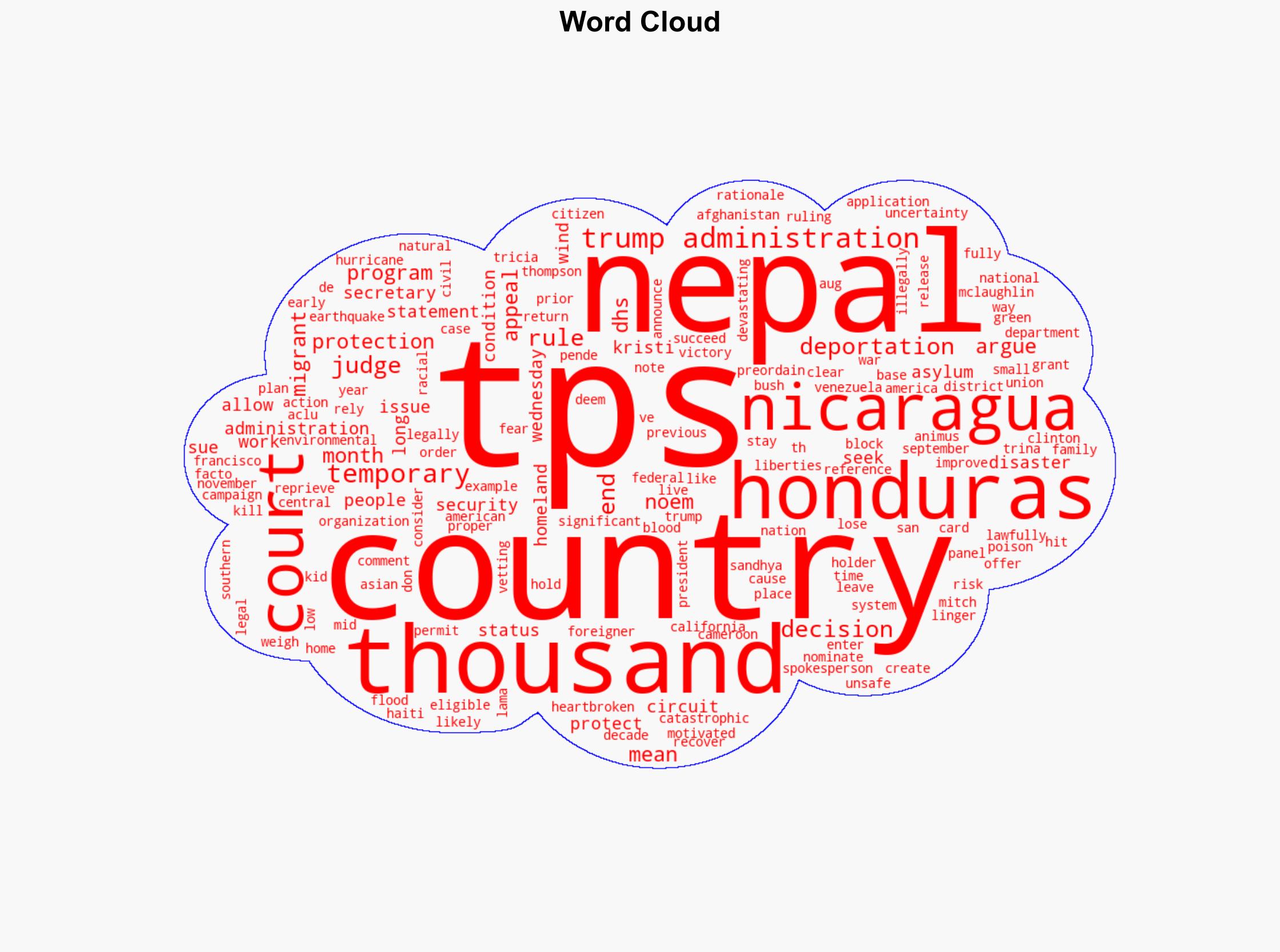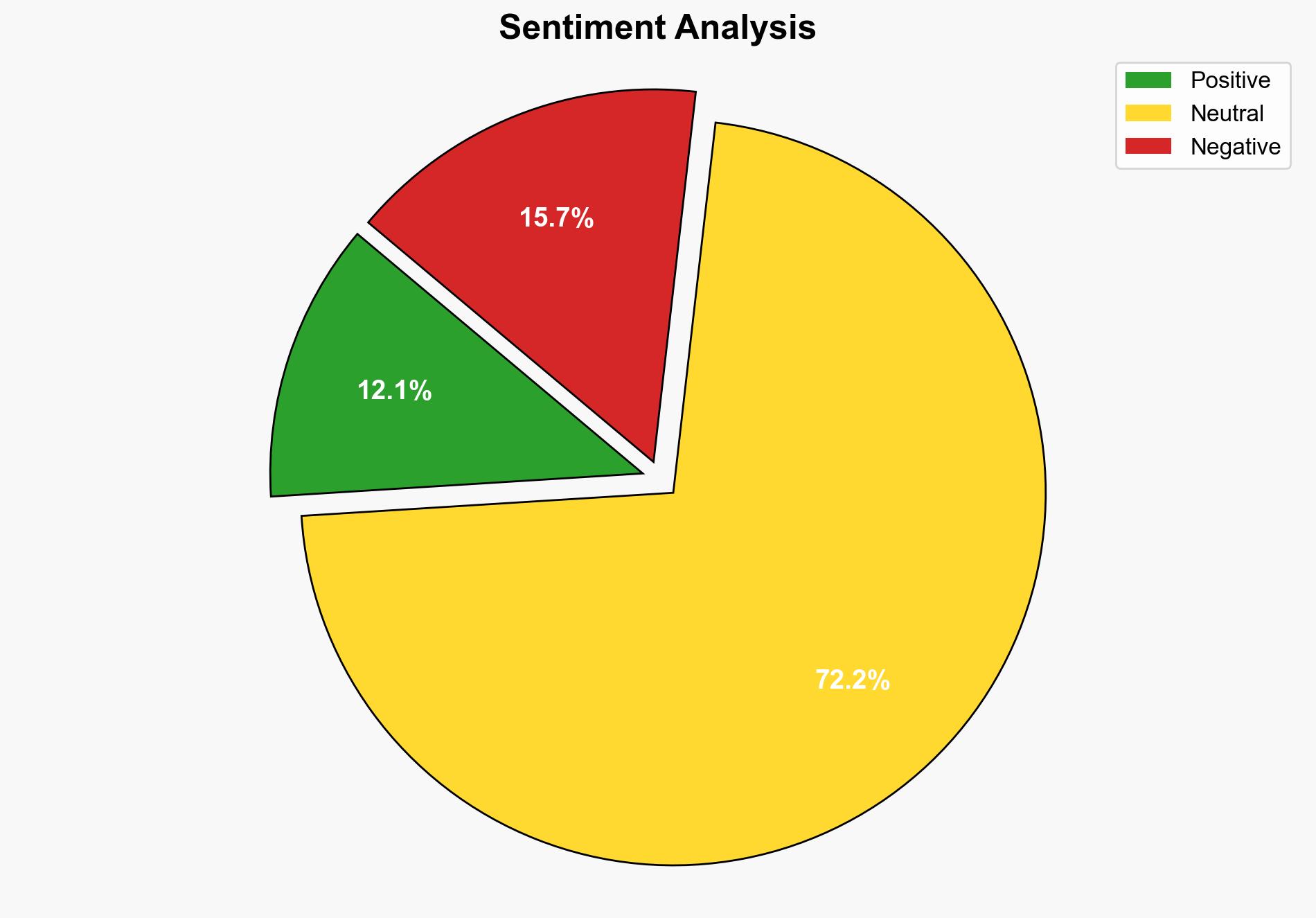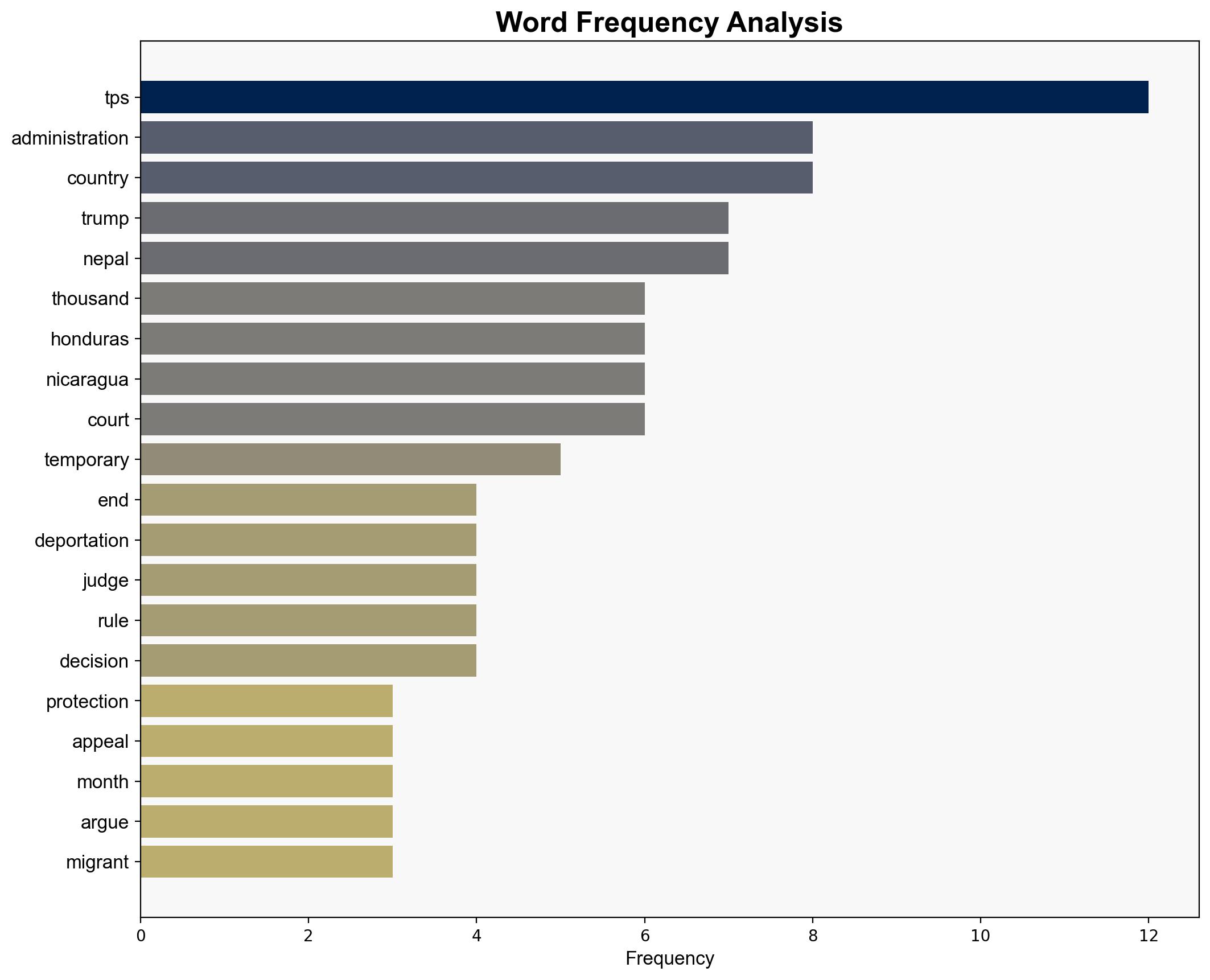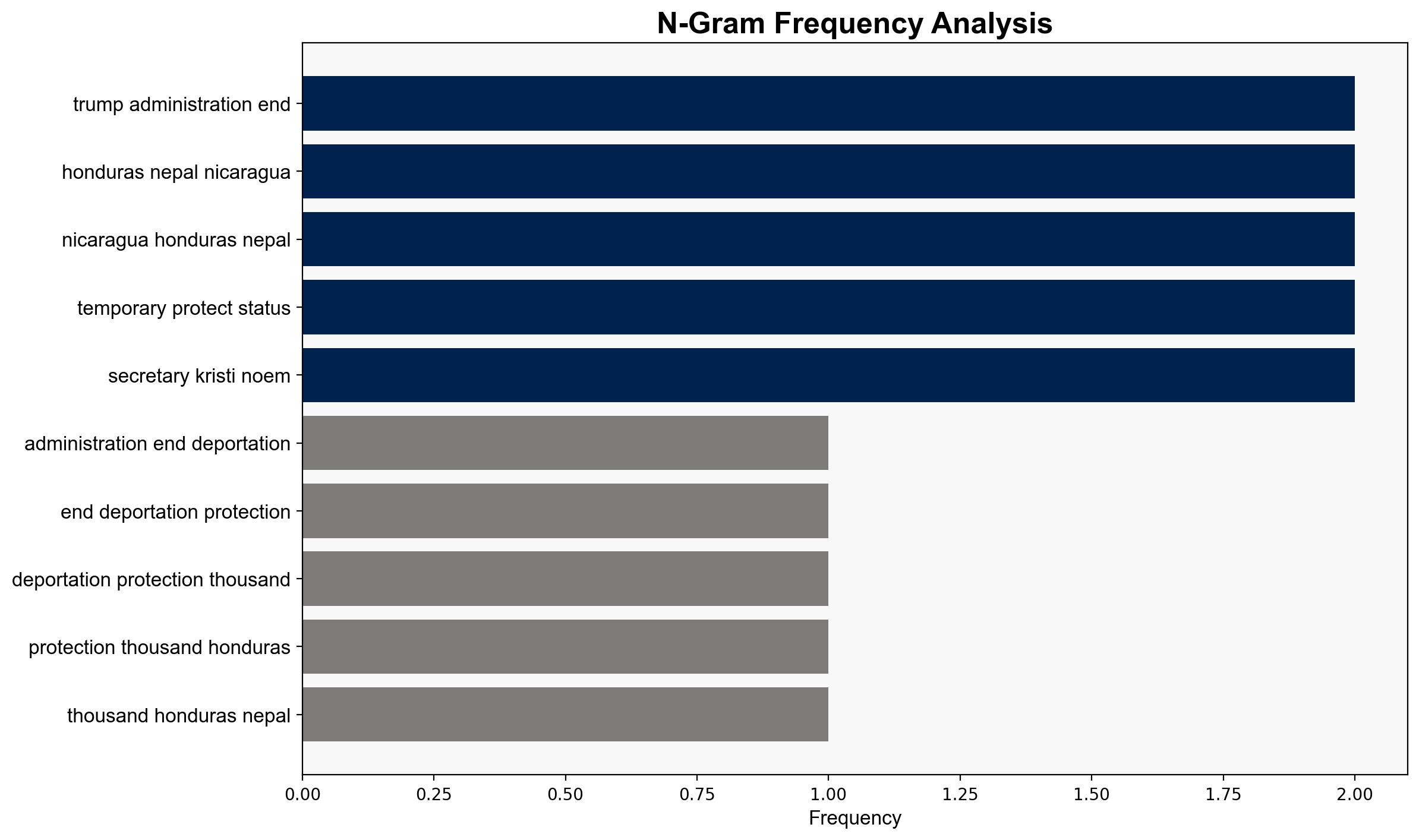Trump admin can end deportation protections for Honduras Nepal and Nicaragua – CBS News
Published on: 2025-08-20
Intelligence Report: Trump Admin Can End Deportation Protections for Honduras, Nepal, and Nicaragua – CBS News
1. BLUF (Bottom Line Up Front)
The Trump administration’s decision to end Temporary Protected Status (TPS) for individuals from Honduras, Nepal, and Nicaragua is likely driven by a combination of legal interpretations and political motivations. The most supported hypothesis suggests that the administration is leveraging legal frameworks to advance a broader immigration policy agenda. Confidence level: Moderate. Recommended action: Monitor legal proceedings and prepare for potential humanitarian and diplomatic repercussions.
2. Competing Hypotheses
– **Hypothesis 1**: The decision to end TPS is primarily motivated by legal and procedural considerations, aiming to align the program with its original intent of being temporary.
– **Hypothesis 2**: The decision is influenced by political motivations, including racial animus and a broader agenda to reduce immigration, as suggested by plaintiffs and past comments from the administration.
Using ACH 2.0, Hypothesis 1 is better supported by the administration’s consistent rationale that TPS is temporary and should not become a de facto asylum system. However, Hypothesis 2 is supported by historical context and statements that suggest a political dimension.
3. Key Assumptions and Red Flags
– **Assumptions**: It is assumed that the legal rationale provided by the administration is the primary driver of the decision. Another assumption is that the conditions in the home countries have sufficiently improved.
– **Red Flags**: The potential bias in judicial rulings and the administration’s past statements indicating racial bias. The lack of comprehensive data on current conditions in the affected countries raises questions about the decision’s timing and justification.
4. Implications and Strategic Risks
Ending TPS could lead to significant humanitarian issues, including family separations and increased illegal immigration. Geopolitically, it may strain relations with the affected countries and impact U.S. influence in Central America and South Asia. Domestically, it could fuel political polarization and legal challenges, potentially escalating into broader immigration policy debates.
5. Recommendations and Outlook
- Engage in diplomatic discussions with Honduras, Nepal, and Nicaragua to mitigate potential backlash and explore alternative solutions for affected individuals.
- Prepare for legal challenges and monitor court rulings to anticipate policy shifts.
- Scenario Projections:
- Best Case: Legal challenges delay the implementation, allowing time for diplomatic solutions.
- Worst Case: Immediate deportations lead to humanitarian crises and diplomatic tensions.
- Most Likely: Continued legal battles with incremental policy adjustments.
6. Key Individuals and Entities
– Donald Trump
– Kristi Noem
– Sandhya Lama
– Trina Thompson
– American Civil Liberties Union (ACLU)
7. Thematic Tags
national security threats, immigration policy, legal challenges, humanitarian impact, geopolitical relations





